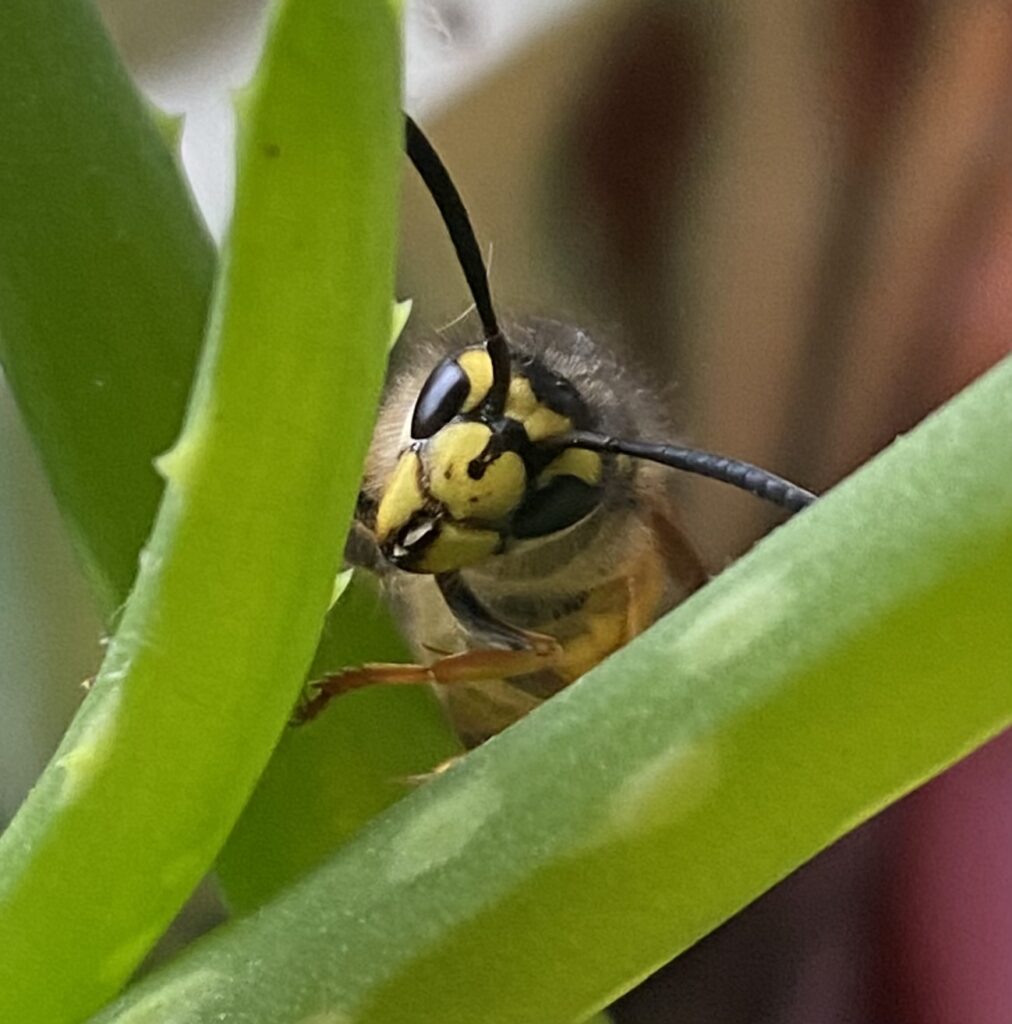Wasps have a terrible PR agency. They are not the enemy and they deserve our respect. We have over 7000 species of wasps in the UK and of these seven species are what we call social wasps. That means they live in a colony, with a life cycle very much like our bumblebees.
Wasps are very closely related to bees. Bees evolved from wasps. Bees are vegan, feeding on pollen and nectar, while the wasps are predatory or parasitic, usually feeding live prey to their offspring. And this means that the annoying wasps we barely tolerate in summer are actually really important in keeping down many of the things gardeners regard as pests. It is thought that the social wasps in our gardens remove something in the region of 14 million kilograms of insect prey from our gardens every year. That is quite staggering and it’s scary to think just what our gardens would be without this free, organic, biological ‘pest’ control.

The Queen wasps craft their nests from wood fibre stripped from garden timber, fences and sheds. They use this to make a papier mache citadel as a nest. It’s exquisite and quite incredible.
Adult wasps feed on nectar and visit our garden flowers to drink this energy rich food. As they move from flower to flower, they pick up pollen and transfer it from plant to plant. Unlike the bees, they don’t usually consciously collect pollen.
By midsummer the wasp nest, just like the bumblebee nest, generates next year’s Queens and males. The nest starts to die down and the worker wasps can become a bit cranky, it is these wasps that can be a nuisance during our summer picnics and barbecues. They are seeking a sugar fix and are attracted by fizzy pop, beer and sweet treats. Invite them to the party with their own place setting somewhere away from the table. Put out the end of a pot of jam or a saucer of beer where they can feast away from your guests.
We need to fall in love with wasps and understand their important role in the natural balance. Please think very carefully before destroying a wasp nest with toxins. These chemicals can persist and affect other beneficial insects and creatures in your garden, poisoning a whole layer of the food chain.